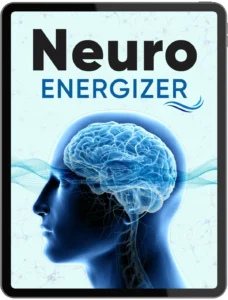A good night’s sleep is more than just rest—it is the foundation for physical health, emotional stability, and mental clarity. Unfortunately, in today’s fast-paced world filled with constant notifications, late-night work, and endless stressors, millions of people struggle to get the deep, restorative sleep their bodies and minds need.
The truth is, sleep quality depends heavily on what you do before bed. By creating the right nighttime routine, you can train your body to wind down naturally, prepare your mind for rest, and maximize your chances of reaching the deeper stages of sleep where true recovery happens.
In this guide, we’ll explore the top 5 nighttime routines that are scientifically proven to improve sleep quality and promote mental recovery.
Why Nighttime Routines Matter for Sleep
Your brain and body operate on a natural circadian rhythm—a 24-hour biological clock that regulates sleep and wake cycles. When your evening habits align with this rhythm, your body knows it’s time to relax and prepare for sleep. But when you expose yourself to blue light from screens, consume caffeine late, or stay mentally overstimulated, you disrupt this rhythm and make it harder to fall asleep.
Nighttime routines act as signals to your brain that bedtime is approaching, reducing stress hormones like cortisol and increasing melatonin, the sleep hormone. Over time, these habits create a consistent sleep-wake pattern, which is essential for both physical and mental recovery.
The Top 5 Nighttime Routines for Deep Sleep and Mental Recovery
1. Digital Detox: Disconnect to Reconnect With Sleep
One of the biggest sleep disruptors is screen time. Phones, tablets, and computers emit blue light that tricks your brain into thinking it’s still daytime. This delays melatonin production and makes it harder to fall asleep.
How to do it:
- Power down devices at least 60 minutes before bed.
- Use blue-light-blocking glasses if you must work late.
- Replace scrolling with calming alternatives like reading a paperback or journaling.
Bonus tip: Many people find that switching to dim, warm lighting in the evening signals the body to start winding down naturally.
2. Mindful Relaxation: Calm the Mind Before Bed
Stress and overthinking are common reasons people lie awake at night. Incorporating relaxation techniques into your routine can ease racing thoughts and lower anxiety.
Options to try:
- Meditation or mindfulness breathing (10–15 minutes).
- Progressive muscle relaxation—tightening and releasing muscles one by one.
- Gentle yoga or stretching to release tension.
Research shows that just a short relaxation session before bed can significantly improve sleep onset and reduce nighttime awakenings.
3. Brainwave Audio or Soothing Sounds
Sound can be a powerful tool for sleep. Brainwave audio technology such as binaural beats or isochronic tones can gently guide your brain into theta and delta wave states, which are essential for deep sleep and mental recovery.
Alternatively, you can use more traditional sleep sounds:
- White noise or pink noise to block background disturbances.
- Nature sounds like rainfall or ocean waves.
- Calm instrumental music at low volume.
Consistency is key—play your chosen sound nightly so your brain begins associating it with rest.
4. The Sleep-Friendly Environment Setup
Even the best nighttime routine will fail if your environment is not optimized for rest. Your bedroom should be a sanctuary dedicated to sleep and relaxation.
Checklist for an ideal sleep environment:
- Temperature: Keep it cool, ideally between 60–67°F (15–19°C).
- Darkness: Use blackout curtains or a sleep mask to block light.
- Comfort: Invest in a supportive mattress and pillows.
- Scent: Consider calming aromatherapy like lavender or chamomile.
By aligning your environment with your body’s natural sleep signals, you’ll fall asleep faster and enjoy longer, deeper rest.
5. Journaling and Gratitude Practice
Many people find it hard to sleep because their minds replay the day’s stressors. Writing in a journal can help “offload” thoughts, reduce mental clutter, and promote peace of mind.
What to journal about before bed:
- A quick to-do list for tomorrow to ease anxiety.
- Gratitude notes—three things you’re thankful for today.
- Reflection on positive moments, which shifts focus away from stress.
This practice not only helps you sleep better but also supports mental recovery by promoting positivity and reducing emotional overwhelm.
Additional Tips to Support Nighttime Routines
- Limit caffeine after 2 PM and avoid alcohol close to bedtime.
- Keep a consistent sleep schedule, even on weekends.
- Avoid heavy meals right before bed, but a light snack (like banana or warm milk) may help.
- Exercise regularly, but not too close to bedtime.
The Connection Between Sleep and Mental Recovery
Sleep is not just physical rest—it is the time when your brain processes memories, regulates emotions, and clears out toxins through the glymphatic system. Deep sleep stages, especially slow-wave sleep, are critical for mental recovery. Without enough quality sleep, you’re more likely to experience brain fog, irritability, poor concentration, and even long-term mental health challenges.
By adopting these nighttime routines, you create a foundation not only for deeper sleep but also for stronger mental resilience, sharper focus, and better emotional balance.
Final Thoughts
Deep, restorative sleep doesn’t happen by chance—it’s the result of consistent, intentional nighttime habits. By committing to these five routines—digital detox, mindful relaxation, sleep-friendly audio, optimized environment, and journaling—you can train your mind and body to rest deeply and recover fully each night.
Better sleep means better days. Start tonight with one small change, and over time, your body will reward you with the gift of restorative sleep and renewed mental clarity.

